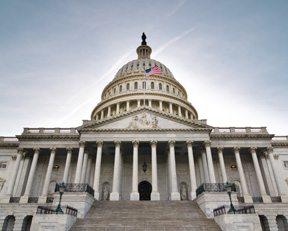
On Wednesday, September 28, 2016, CMS released a final rule updating the Conditions of Participation (CoP) for long-term care (LTC) facilities. LTC facilities affected by the release of these regulations include skilled nursing facilities (SNFs) for Medicare and nursing facilities (NFs) for Medicaid, or those facilities that are dually certified. Entities must adhere to the new and revised CoP in order to continue to receive reimbursement under the Medicare and Medicaid programs.
The regulatory changes in the final rule will be effective on November 28, 2016. However, CMS has implemented a phased implementation, which will require LTC facilities to come into compliance over the next three years. CMS estimates the costs of compliance to be $62,900 per facility in the first year of implementation, and $55,000 per year in subsequent years (up from $46,500 and $40,700 respectively in the proposed rule).
LTC facilities must develop antibiotic stewardship and infection control programs
CMS is finalizing its proposal that facilities develop an Infection Prevention and Control Program that includes an antibiotic stewardship program. Facilities will also be required to designate at least one Infection Preventionist. Facilities will be required to follow “national guidelines” but will be allowed to select the specific national guideline most appropriate for their facility (CDC, IDSA, etc.). CMS specifically declined to designate the CDC guidelines in response to comments, noting that facilities need flexibility in that area.
Residents prescribed or taking antibiotics will have their medical chart reviewed by a pharmacist during each monthly drug regimen review, in support of the antibiotic stewardship program.
Use of antidepressants to be reviewed alongside other “psychotropic drugs”
In an attempt to reduce inappropriate use of antipsychotics, CMS has finalized a series of requirements related to residents prescribed “psychotropic drugs.” The final rule includes antidepressants (along with antipsychotics, anti-anxiety agents, and hypnotics) in the definition of “psychotropic drugs” which will be subject to pharmacy review. However, in response to commenters, CMS made modifications to address concerns raised by commenters – for example, residents that are diagnosed with a condition and who are stable on the medication may be exempted from the review and any additional interventions.
Generally, facilities must ensure that residents who have not used psychotropic drugs are not given the drugs unless medically necessary to treat a specific condition; receive gradual dose reductions and behavioral interventions, unless clinically contradicted, in an effort to discontinue these drugs; residents do not receive psychotropic drugs pursuant to a PRN (“as necessary”) order unless necessary to treat a specific diagnosed condition, and the PRN is limited to 14 days and cannot be renewed unless the attending physician or prescribing practitioner evaluates the resident for appropriateness of that medication.
Nursing and other staffing requirements are subject to an annual self-assessment
A number of comments submitted prior to the issuance of the proposed rule focused on the adequacy, in terms of both numbers and expertise, of LTC facility staff, especially nursing staff. In response, CMS proposed and is finalizing a new requirement that facilities annually complete a self-assessment of their staffing, physical, cultural, service, administrative, and IT needs in order to maximize the health and well-being of facility residents. Rather than mandate specific staffing requirements, CMS will require facilities to staff themselves to ensure that residents receive treatment and care in accordance with professional standards of practice, the comprehensive person-centered care plan, and the residents’ choices.
New Measures will protect resident rights and reduce abuse, neglect, and exploitation
In light of recent accusations of LTC facility staff violations of resident’s privacy via social media, the rule finalizes updates to the patient protection regulations to incorporate advances such as electronic communication that have arisen since the last update of the regulations.
In addition, facilities will be required to investigate and report all allegations of abusive conduct, and prohibited from employing individuals who have had a disciplinary action taken against their professional license by a state licensure body as a result of a finding of abuse, neglect, mistreatment of residents or misappropriation of their property.
Facilities must develop baseline care plans for each resident within 48 hours of admission
The rule finalizes a proposed requirement that facilities develop and implement baseline care plans for each resident in the first two days of their admission to a facility. These plans must include instructions needed to provide effective and person-centered care. CMS is adding nurse aides and members of a facility’s food and nutrition staff to the required members of the care team charged with developing a patient’s care plan. In addition, facilities must develop a discharge plan for each resident that focuses on their individual goals and includes the patient in post-discharge care, transitions, and reduction of re-admission.
Please leave us a comment, give us a call at 202-558-5272, or email us directly at jscott@appliedpolicy.com if you have questions or would like help determining how these new requirements could affect your organization.


